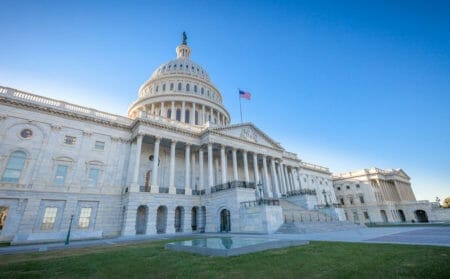
Washington, DC –-(Ammoland.com)- Sportsmen’s Act of 2012 is up for possible consideration next week in the US Senate.
This Act is virtually identical to the amendment Senator Jon Tester (along with Senator Thune, R-SD) hoped to add to the Farm Bill in June of 2012.
The bill – S. 3525 – is really about 20 bills rolled into one package.
Embedded at the bottom is a brief description of the act and a short document that describes each section of the bill.
The Senate floor schedule is unclear right now – the bill could be called up as early as this Thursday. We don’t expect votes to begin on the bill until next Wednesday.
What is this amendment?
This amendment is a compilation of over twenty bills important to the sportsmen’s community to support access and conservation of habitat and species. The bill focuses on two core issues: 1) Increasing access for recreational hunting and fishing and; 2) habitat conservation.
Why is it important?
Economic and Social Impact: Sportsmen and women have a long history of species and public lands conservation and this bill embraces that legacy. As of the last national survey in 2011, 90.1 million people participated in hunting, fishing, and wildlife watching, or 38 percent of the U.S. population. According to the Western Governors Association, outdoor recreation contributed $646 billion in direct spending to the U.S. economy in 2011. It supports 2.3 million jobs throughout the Western U.S, with nearly $110 billion in payroll.
Improves Access: Nearly 35 million acres of existing public land have no or restricted access. Sportsmen cite the loss of access as the number one reason they quit hunting or fishing. This bill reauthorizes Federal Lands Transaction Facilitation Act, which uses the “land for land” approach to improving access. It also creates a 1.5% set aside from LWCF to specifically address access issues by purchasing in holdings in existing public lands and securing easements to access-restricted acreage.
Supports Habitat Conservation: Sportsmen and women are significant financial contributors to habitat conservation. Since 1934 Duck Stamps have generated $750 million dollars to protect wetland habitat. Ninety-eight cents of every dollar go directly to preserving wetlands. This amendment allows the Secretary of Interior to reevaluate the price of Duck Stamp every three years and permanently offer an electronic duck stamp, assuring the stamp price can match inflation. The amendment also continues other critical habitat investment programs which are, or have expired, including NAWCA, Partners for Fish and Wildlife, and Neotropical Migratory Bird Conservation Act. These programs all leverage four dollars of private investment for each dollar from the program.
Who supports it?
This package is the work of the Co-Chairs of the Congressional Sportsmen’s Caucus and is a compilation of the priorities of the sportsmen’s community. This package is supported by over 50 groups, including:
- American Fisheries Society
- American Fly Fishing Trade Association
- American Sportfishing Association
- Archery Trade Association
- Association of Fish and Wildlife Agencies
- B.A.S.S., LLC
- Berkley Conservation Institute
- Boone and Crockett Club
- Bowhunting Preservation Alliance
- Campfire Club of America
- Catch-A-Dream Foundation
- Center for Costal Conservation
- Congressional Sportsmen’s Foundation
- Conservation Force
- Costal Conservation Association
- Dallas Safari Club
- Delta Waterfowl Foundation
- Ducks Unlimited
- Houston Safari Club
- Isaac Walton League
- International Game Fish Association
- Mule Deer Foundation
- National Marine Manufacturers Association
- National Rifle Association
- National Wildlife Refuge Association
- National Wildlife Federation
- National Shooting Sports Foundation
- National Trappers Association
- National Wild Turkey Federation
- North American Bear Foundation
- North American Grouse Partnership
- Orion – the Hunter’s Institute
- Pheasants Forever
- Pope and Young Club
- Public Lands Foundation
- Quail Forever
![]()
